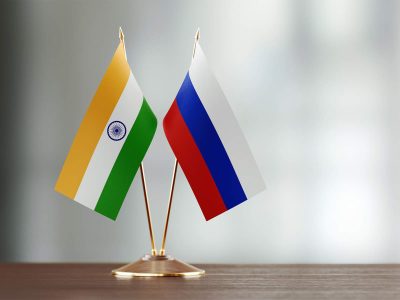India’s Weapon Diversification Not a “Humiliating Blow for Putin”

All Global Research articles can be read in 51 languages by activating the “Translate Website” drop down menu on the top banner of our home page (Desktop version).
To receive Global Research’s Daily Newsletter (selected articles), click here.
Visit and follow us on Instagram, Twitter and Facebook. Feel free to repost and share widely Global Research articles.
***
India for decades has had a close cooperation with Moscow, which extends into the defence industry. With India attempting to rise to Great Power status in the context of the current multipolar system, it has also engaged in an ambitious effort to achieve a thriving indigenous military industrial complex through joint productions, which includes Russia. However, according to Western media, India’s diversification of its defence systems is a “humiliating blow” for Russian President Vladimir Putin.
Britain’s Express newspaper, with the title “India turns on Russia and strikes major deal with West in humiliating blow for Putin”, wrote on June 20 that India is beginning talks with the US, Israel and European countries for a new arms deal.
The article explains that “India is not a major importer of Russian oil and gas” but omits, according to Bloomberg, that the South Asian country has bought more than 40 million barrels of Russian oil between late-February and early-May, which comes to about 20% more than flows for all of 2021.
India imports 80% of its oil but usually only buys about 2% to 3% from Russia. With oil prices increasing following the Russian military operation in Ukraine, New Delhi has increased its intake from Moscow, taking advantage of the major discounts. In this way, India is rapidly becoming a major market for Russian energy, so-much-so that the country has overtaken Saudi Arabia to become India’s second biggest supplier of oil – only behind Iraq.
The article’s author writes: “Russia’s ability to influence European decisions due to its energy dependence has sparked concerns about relying too heavily on a single supplier.” However, there is no evidence or indication from New Delhi that Europe’s energy dependence on Russia has motivated India’s weapon diversification.
In fact, Javin Aryan in his March 2021 paper titled “The evolving landscape of India’s arms trade”, stated that: “defense transfers from the US to India declined by 46% as well. India’s goal, thus, seems to have been to cut its dependence on other countries for defence systems across the board rather than to pivot from one supplier to the other. This underlines New Delhi’s resolve to promote indigenous defence manufacturing and export.”
He then stresses that “India should find ways of becoming self-reliant that would not adversely affect relations with its partner countries”, naming Russia, France and Israel, as they are countries which New Delhi find “operationally, diplomatically, and politically unviable to sever” from.
In this way, India’s weapons diversification and indigenous programs is not a “humiliating blow to Putin” as the Express leads readers to believe, but rather a years-long stated goal that has been worked on, and even with assistance from Russia. More importantly, it is certainly not a reaction to the war in Ukraine and Europe’s energy dependence on Russia.
Rather, it is a lazy attempt to coverup the fact that the West has been humiliated time and again in their incessant demand that India ends its decades long cooperation with Moscow to impose sanctions and end energy imports.
“Furthermore, Putin’s invasion of Ukraine has deepened relations between Russia and China, a neighboring country that India is continually in a border conflict with,” the Express article added.
Although the strategic relationship between Moscow and Beijing has certainly strengthened over the course of the war in Ukraine, the statement alludes that this has affected Russia-India ties. Moscow, New Delhi and Beijing, unlike most of the West, operate on principles of bilateral relations not being beholden by third parties. In this way, despite tensions that may exist between India and China, it will not spill over into their relations with Russia.
As the Express was alluding to Putin’s “humiliation” from India, Indian banks met with Russian banks, that are not under Western sanctions, on June 15 to facilitate bilateral payments. According to the Economic Times, these Indian banks will likely open accounts at their Russian counterparts and vice versa without violating the economic sanctions on Russia over the Ukraine war.
If these banks from both sides start engaging bilaterally, banking transactions can take place in any currency, including the dollar, euro, rupee or the rouble. A proposal of paying Russians in rupees was also discussed.
The British tabloid alludes that there is a crisis, or at least a looming crisis, in Russian-Indian relations. However, despite these allusions, deceiving Western readers does not change the facts on the ground that Moscow-New Delhi ties and cooperation is only expanding and not contracting just because India is pursuing its years-long stated goal of diversification and indigenisation of its defence systems.
*
Note to readers: Please click the share buttons above or below. Follow us on Instagram, Twitter and Facebook. Feel free to repost and share widely Global Research articles.
Paul Antonopoulos is an independent geopolitical analyst.
Featured image is from InfoBrics

